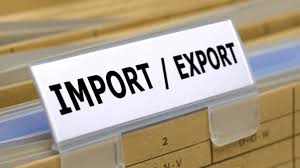Tel: 0161 652 3443 | Email: sales@aeronacca.co.uk
A Big Cross for the Big Tick – The Importance of Correct Goods Classification
In the world of international trade, correct goods classification is a fundamental aspect that can significantly impact a company’s financial obligations, legal standing and operational efficiency.
The ongoing dispute between Nike and Belgian authorities serves as an important and high profile case study, highlighting the critical importance of accurate classification and valuation of imports.
The Nike Case: An Overview
Nike is currently caught up in a legal confrontation with Belgian customs and tax authorities, who allege that the company has undervalued its imports, leading to insufficient payment of import duties and VAT.
The Belgian authorities claim that Nike’s internal invoicing practices have resulted in significantly lower declared values for its goods entering the European Union.
This alleged undervaluation has reportedly allowed Nike to evade the correct payment of duties and VAT.
Nike operates multiple companies connected to its European logistics hub located in Laakdal, which serves as a vital distribution centre for products reaching Europe, the Middle East and Africa.
Authorities assert that the internal pricing between these entities does not reflect the true market value of the imported goods. This diminishes the company’s duty and VAT obligations.
While Nike contends that its internal pricing structures and valuation methods comply with international trade laws, the case will soon be adjudicated in the Limburg court, with a resolution not anticipated until February 2026.
This lengthy delay creates uncertainty for both Nike and regulatory authorities, demonstrating the far-reaching implications of this dispute.
Implications for Multinational Companies
The Nike case offers crucial insights which are applicable to multinational corporations across various sectors.
Here are several key issues that could impact customs and tax compliance practices for businesses engaged in international trade:
1. Increased Scrutiny of Internal Pricing Practices – The attention directed towards Nike’s internal pricing structures signals a broader trend of heightened scrutiny of how multinational companies value their goods.
In a global economy where businesses often operate in multiple jurisdictions, it is vital to ensure that internal pricing mechanisms are consistent with market valuations.
Companies should conduct regular audits to verify that their import valuation practices comply with prevailing market rates to mitigate the risks of disputes.
2. Compliance with Customs Regulations – Nike’s case highlights the essential role of rigorous adherence to customs regulations.
Transparency and accuracy in import declarations are paramount for avoiding costly legal battles.
Companies must maintain meticulous documentation and ensure that their customs classifications align with the Harmonised Tariff Schedule, which dictates duty rates based on product classifications. Any discrepancies may lead to penalties, audits and prolonged litigation, as evidenced by Nike’s situation.
3. Risk Management Strategies – The complexities of international trade necessitate comprehensive risk management strategies.
Multinational corporations must develop robust compliance frameworks that encompass customs duties, VAT obligations and internal pricing policies.
Engaging with customs clearing agents like Aerona can provide invaluable support in navigating the regulatory landscape, ensuring that businesses remain compliant while minimising risks associated with audits and penalties.
4. Training and Awareness – Investing in employee training and awareness regarding customs compliance is critical.
Businesses should ensure that staff responsible for trade operations are well-versed in classification rules, valuation practices and documentation requirements.
Regular training helps to fortify a company’s compliance culture and reduce the likelihood of misclassification or undervaluation.
5. Reputation Management – Beyond financial penalties, non-compliance may tarnish a company’s reputation, impacting its relationships with clients, suppliers and regulators.
Upholding high standards in customs compliance can enhance a company’s credibility and strengthen its standing in competitive markets.
Ensuring that goods are accurately classified and valued is integral to maintaining a trustworthy business reputation.
The ongoing dispute between Nike and Belgian authorities serves as a powerful reminder of the complexities involved in international trade.
Accurate goods classification and valuation are not just regulatory requirements, they have far-reaching implications for financial obligations, operational processes and a company’s reputation.
As the landscape of global trade continues to evolve, multinational corporations must prioritise compliance and risk management practices to navigate these challenges effectively.
What Lessons Can Importers and Exporters Learn from Nike’s Situation to Avoid Similar Pitfalls?
The ongoing dispute faced by Nike serves as a critical case study for importers and exporters aiming to navigate the complex landscape of international trade efficiently.
Here are key lessons that can be derived from this situation, along with recommendations from Aerona:
1. Ensure Accurate Valuation – Importers and exporters must prioritise accurate valuation of goods for customs purposes.
Valuations should reflect the true market value and comply with international valuation standards.
This involves:
- Thorough documentation to support the declared values.
- Regular audits of valuation practices to ensure compliance with changing regulations.
2. Review Internal Pricing Structures – Regularly reviewing and adjusting internal pricing structures is vital.
Importers and exporters should:
- Conduct internal assessments to ensure pricing practices align with customs and tax regulations.
- Implement changes proactively to prevent disputes that could arise from misclassification or undervaluation.
3. Engage with Experts – Engagement with customs consultants and legal experts is essential for navigating complex regulatory environments.
Their expertise can be invaluable and help prevent costly mistakes. Businesses should:
- Formulate strong relationships with customs experts to receive informed guidance on compliance.
- Invest in training their teams on the intricacies of customs regulations and valuation practices.
The Nike tax dispute with Belgian authorities serves as an important reminder of the complexities involved in global trade and customs compliance.
For professionals in the field, this case highlights the importance of engaging in accurate valuation, maintaining rigorous compliance and adopting proactive risk management strategies.
Expert Recommendations
1. Review Your Valuation Practices – Ensure that your import and export valuations genuinely reflect the market value of goods.
2. Engage with Compliance Experts – Consult with customs and tax professionals to safeguard your business against potential disputes.
3. Maintain Transparent Documentation – Keep thorough records that support your valuation and compliance practices.
This transparency not only aids in audits but also builds trust with regulatory authorities.
By embracing these lessons and recommendations, importers and exporters can mitigate their risks and create a more stable foundation for successful international trade operations. Check our FAQ to answer any questions you may have.

